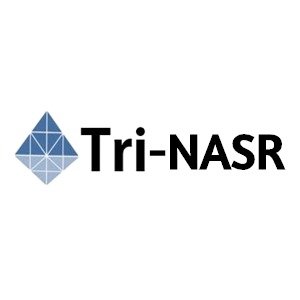Best Oil, Gas & Energy Lawyers in Kano
Share your needs with us, get contacted by law firms.
Free. Takes 2 min.
List of the best lawyers in Kano, Nigeria
About Oil, Gas & Energy Law in Kano, Nigeria
Oil, Gas & Energy law in Kano, Nigeria is a specialized branch of legal practice that addresses the complex and multifaceted industry focused on exploration, extraction, production, and distribution of oil, gas, and energy resources. Kano, while not one of the primary oil-producing regions of Nigeria, plays a significant role in the energy sector, especially in regard to distribution and consumption due to its status as a major commercial hub in the northern region of the country. The legal framework surrounding this field is heavily influenced by both federal and state regulations, which aim to ensure sustainable practices, protect investments, and facilitate economic growth.
Why You May Need a Lawyer
There are numerous situations in which individuals or businesses may require legal assistance within the Oil, Gas & Energy sector in Kano. This includes navigating contracts for oil and gas leases, resolving disputes related to energy supply or distribution, ensuring compliance with environmental regulations, and understanding taxation obligations. Lawyers in this field can also assist with due diligence for investments, negotiations with stakeholders, and protection of intellectual property rights related to energy technologies. Engaging a lawyer can help mitigate risks and ensure that all legal facets of operations are properly managed.
Local Laws Overview
The legal framework governing the Oil, Gas & Energy sector in Kano, Nigeria includes a combination of federal and state laws. Key federal legislation includes the Petroleum Act, which regulates the oil and gas industry, and the Nigerian Oil and Gas Industry Content Development Act, which focuses on enhancing local content in the industry. At the state level, Kano's local government may have additional regulations that pertain to energy distribution, environmental impact assessments, and land use. Adherence to these laws is essential for operating legally and effectively within the region.
Frequently Asked Questions
What are the main laws regulating the oil and gas industry in Nigeria?
The primary laws are the Petroleum Act, the Nigerian Oil and Gas Industry Content Development Act, and the Petroleum Industry Act, which collectively oversee exploration, production, and the sector's operational conduct.
How does Kano influence Nigeria's energy sector?
While not a production hub, Kano's strategic importance lies in its infrastructure for energy distribution and its role in regional economic activities, which drive significant energy demand.
What types of legal contracts are common in this sector?
Common legal contracts include joint venture agreements, production sharing contracts, service contracts, and leases for oil or gas exploration and production.
Can foreign investors participate in Nigeria's oil and gas sector?
Yes, foreign investors are welcome, but they are encouraged to comply with the Nigerian Content Development policies, which prioritize local employment and skills development.
What environmental regulations must be considered?
Operators must comply with environmental laws such as the Environmental Impact Assessment Act, which requires assessments before commencing any oil and gas project.
How are disputes in the oil and gas sector typically resolved?
Disputes can be resolved through litigation in Nigerian courts, although arbitration and other alternative dispute resolution methods are also commonly used to save time and costs.
What is the role of the Nigerian National Petroleum Corporation (NNPC)?
The NNPC oversees the government's interests in the oil and gas sector, including regulation, exploration, and sales.
How important is it to ensure compliance with local content laws?
It is critical as non-compliance could result in penalties, loss of contract opportunities, or reputational damage. The government emphasizes local involvement and benefits from foreign investments.
Are there any special tax incentives for the energy sector?
Yes, tax incentives exist, such as in the Petroleum Profits Tax Act, to encourage investment in the sector, including exemptions and relief for pioneering industries and infrastructure developments.
What should companies consider when addressing land use for energy projects?
Companies must consider land acquisition laws, community relations, compensation agreements, and environmental impact studies to ensure lawful and harmonious project execution.
Additional Resources
Individuals seeking more information on Oil, Gas & Energy legal matters in Kano can contact resources such as the Department of Petroleum Resources (DPR), the Nigerian Content Development and Monitoring Board (NCDMB), and local legal associations. They can also consult relevant governmental bodies, such as the Ministry of Energy, for guidance.
Next Steps
If you are in need of legal assistance in the Oil, Gas & Energy sector, it is advisable to consult with a legal professional who specializes in this field. Start by researching experienced lawyers or law firms in Kano, reach out to local bar associations for referrals, and schedule consultations to discuss your specific legal concerns. Additionally, ensure that any legal counsel you engage is familiar with both the federal and state laws that pertain to your situation.
Lawzana helps you find the best lawyers and law firms in Kano through a curated and pre-screened list of qualified legal professionals. Our platform offers rankings and detailed profiles of attorneys and law firms, allowing you to compare based on practice areas, including Oil, Gas & Energy, experience, and client feedback.
Each profile includes a description of the firm's areas of practice, client reviews, team members and partners, year of establishment, spoken languages, office locations, contact information, social media presence, and any published articles or resources. Most firms on our platform speak English and are experienced in both local and international legal matters.
Get a quote from top-rated law firms in Kano, Nigeria — quickly, securely, and without unnecessary hassle.
Disclaimer:
The information provided on this page is for general informational purposes only and does not constitute legal advice. While we strive to ensure the accuracy and relevance of the content, legal information may change over time, and interpretations of the law can vary. You should always consult with a qualified legal professional for advice specific to your situation.
We disclaim all liability for actions taken or not taken based on the content of this page. If you believe any information is incorrect or outdated, please contact us, and we will review and update it where appropriate.













